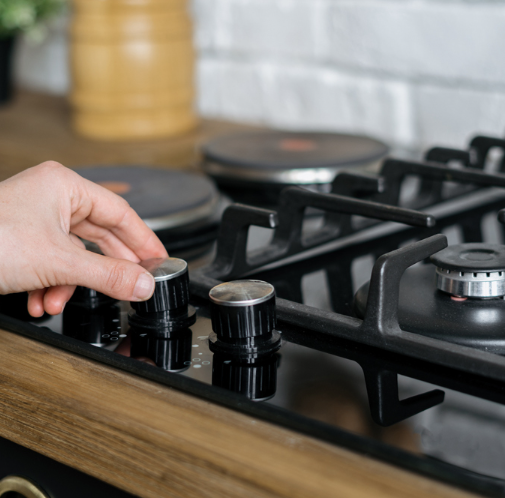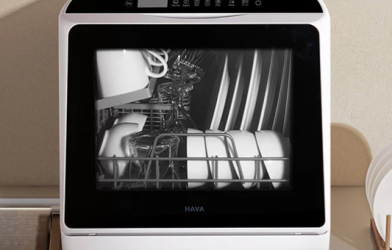Subtotal $0.00
Choosing the right cooktop for your kitchen can be a challenging decision, especially with the variety of options available. Induction, electric, and gas cooktops all offer distinct advantages and potential drawbacks, making it essential to understand their differences before making a purchase. In this post, we’ll break down the pros and cons of each type of cooktop to help you find the best one for your needs.
What Are Induction Cooktops?
Induction cooktops are a modern variation of electric stoves that use electromagnetic energy to heat cookware directly. Instead of warming the cooktop surface, the induction technology transfers energy to pots and pans with a magnetic base, heating them up quickly and efficiently. Induction cooktops are a top choice for those seeking an eco-friendly, energy-efficient, and fast-cooking solution.
Induction cooking is known for its quick heat-up time, safety features, and energy savings. The cooktop surface stays cool to the touch, reducing the risk of burns. Induction cooktops are also easier to clean since there are no open flames or coils to deal with. However, these cooktops tend to have a higher initial cost and require specific cookware designed for magnetic induction. Additionally, there can be a slight learning curve due to the precise temperature control needed for induction cooking.
Advantages of Induction Cooktops
- Speed: Induction cooktops heat up quickly, cutting down your cooking time.
- Safety: The cooktop remains cool, lowering the risk of burns.
- Energy Efficiency: Induction cooktops use less energy, leading to lower electricity bills.
- Easy Cleanup: The smooth surface is simple to wipe down.
- Modern Design: Sleek and stylish, induction cooktops give your kitchen a contemporary look.
Disadvantages of Induction Cooktops
- Higher Initial Cost: Induction cooktops typically cost more than other types.
- Specialized Cookware: You’ll need pots and pans with magnetic bases.
- Learning Curve: The precise controls may take some getting used to.
What Are Electric Cooktops?
Electric cooktops use metal coils beneath a glass or ceramic surface to generate heat. When the coils heat up, they transfer the heat to the cooking surface, which then warms the cookware and food. While electric cooktops are similar to induction in that they are both powered by electricity, induction cooktops are generally considered more energy-efficient.
Electric cooktops are an affordable and simple option for many households. They are easy to install and use, with no special requirements for cookware. One advantage of electric cooktops is the ability to use residual heat to keep food warm after cooking. However, electric cooktops can take longer to heat up compared to induction, and their temperature control is less precise.
Advantages of Electric Cooktops
- Affordable: Electric cooktops are generally budget-friendly.
- Versatile: They work with a wide variety of cookware.
- User-Friendly: Simple controls make them easy to operate.
- Widely Available: Electric cooktops are easy to find and replace.
Disadvantages of Electric Cooktops
- Slower Heating: Electric cooktops take longer to heat up compared to induction.
- Less Energy Efficient: They consume more energy than induction cooktops.
- Less Precise Temperature Control: Compared to induction, electric cooktops offer less control over heat.
- Residual Heat: The cooktop surface stays hot after cooking, which can be a safety concern.
What Are Gas Cooktops?
Gas cooktops have long been a staple in kitchens due to their reliability and performance. These cooktops use either natural gas or propane to produce an open flame, which provides instant heat that is easy to control. Gas cooktops are favored by professional chefs for their ability to offer quick temperature adjustments and a wide range of flame sizes.
Gas cooktops are compatible with almost all types of cookware, offering flexibility in your kitchen. They are also more affordable than induction cooktops. However, gas stoves do come with some safety concerns, as open flames can lead to burns or accidents. They also require more cleaning due to the presence of burners and grates, and they are less energy-efficient compared to induction cooktops.
Advantages of Gas Cooktops
- Instant Heat: Gas cooktops provide quick and precise heat control.
- Versatility: Suitable for a variety of cookware.
- Traditional Feel: Many people prefer the familiar experience of cooking with gas.
- Affordable: Gas cooktops are generally more budget-friendly than induction.
- Energy Independence: Gas cooktops don’t require electricity, making them functional during power outages.
- High Heat Output: Great for tasks like searing and boiling.
Disadvantages of Gas Cooktops
- Safety Risks: Open flames can increase the risk of burns and accidents.
- Cleaning Challenges: The grates and burners can be difficult to clean.
- Energy Inefficiency: Gas cooktops are not as energy-efficient as induction models.
- Environmental Impact: Using natural gas contributes to emissions.
- Space Requirements: Gas cooktops often require more counter space, which may limit kitchen layouts.
Our Top Picks for Induction, Electric, and Gas Cooktops
If you’re looking for the best cooktop in each category, here are some top recommendations:
- Cafe Café™ Series 36″ Built-In Touch Control Induction Cooktop
Why we love it: This induction cooktop offers 19 heat settings, responsive controls, and a sleek design illuminated by white LED lights. With features like spill-resistant technology, guided recipes, and rapid boiling, it’s perfect for both beginner and experienced cooks. Plus, it connects to WiFi for added convenience. - Frigidaire 36″ Electric Cooktop (FFEC3625UB)
Why we love it: This electric cooktop includes a 3,000W quick boil element for fast cooking, a SpaceWise expandable element for various pot sizes, and a ceramic glass surface that’s easy to clean. It also offers a keep-warm zone and a hot surface indicator for safety. - KitchenAid 30″ 5-Burner Gas Cooktop (KCGS350ESS)
Why we love it: This gas cooktop features a 5,000 BTU Even-Heat Simmer Burner for precise cooking, full-width cast-iron grates for easy cookware movement, and electronic ignition for convenience. It’s designed with style and functionality in mind.
Final Thoughts: Which Cooktop Is Right for You?
The best cooktop ultimately depends on your preferences, budget, and cooking style. Induction cooktops are highly efficient and modern but come at a higher price, while electric cooktops offer affordability and simplicity. Gas cooktops are favored by many for their quick heat control but may not be the most energy-efficient option. No matter which cooktop you choose, understanding your needs and priorities will help you make the best decision for your kitchen.












